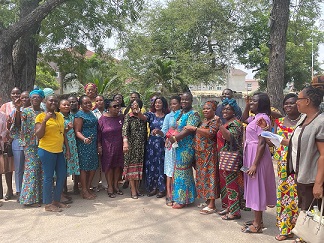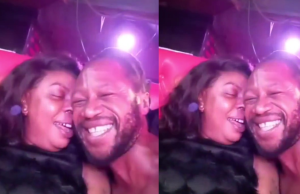The Women’s Manifesto Coalition (WMC) has expressed worry about the political party cultures that are failing to include gender equality and women’s rights as salient issues in the process of building a democratic Ghana.
The most recent internal political party primaries of the two primary political entities, the National Democratic Congress (NDC) and the New Patriotic Party (NPP), both of which control 100% of the seats in the national Parliament, indicate a substantial decline in the representation of women.
This underrepresentation of women does not augur well for women’s ability to contribute to critical decisions that have implications for their socio-economic well-being.
Globally, the consensus is that political parties are a critical element in the building of participatory democracies.
Speaking at a media engagement organised by Abantu for Development, a non-governmental organisation, in Accra the Convenor of the Coalition, Hamida Harrison, disclosed that after 34 years of local governance, women currently constituted 4.1 per cent of elected members at the metropolitan, municipal and district assemblies (MMDAs) and 14.5 per cent of Members of Parliament (MPs).
Emphasizing the UN Resolution of the General Assembly 66/130 on Women and Political Participation, it calls upon states to, among other things, strongly urge political parties to eliminate all barriers, whether direct or indirect, that discriminate against the participation of women.
The resolution encourages political parties to enhance their capacity for gender-sensitive issue analysis and, as deemed suitable, to adopt policies that facilitate the full participation of women at all decision-making levels within those political entities.
Highlighting the significance of political parties in promoting democracy in Ghana, Hamida Harrison underscored the need for women’s groups to assertively advocate for equitable participation in political decision-making.
Mrs. Hamida expressed concern, stating that it is alarming that while other countries are progressing towards achieving equal representation for both males and females in political decision-making, Ghana is regressing.
The WMC Convenor said while the political parties were structured in a manner that did not promote women’s participation, the huge financial requirements to run campaigns aggravated the situation.
“We know that some political parties have reduced filing fees for female candidates, but the progress is slow to deal with the systemic conditions that limit women’s participation in decision-making. The filing fees should be abolished completely,” she stressed.
Pauline Adobea Dadzawa, a Consultant and former Commissioner at the Electoral Commission, echoed the urgency of taking decisive actions to combat underlying factors contributing to gender inequality.
Advocating for empowering measures, Dadzawa proposed the implementation of a quota system to elevate women’s participation. She emphasized the need for political parties to institute comprehensive training programs, preparing women for active political engagement.
Additionally, Dadzawa stressed the importance of targeted mentorship systems for women, enhancing their confidence in pursuing political office. She called for the cultivation of internal party cultures actively promoting women’s participation, with a commitment to eliminating gender discrimination.
The Former Commissioner underscored the need for deliberate efforts to appoint women to positions of responsibility beyond elective roles, aiming to narrow the existing gender gap.
In a call to action, Dadzawa urged the media to wield their platforms in providing equitable coverage of women empowerment issues, asserting that addressing barriers to women’s participation necessitates considerable attention from the media.
The Women Manifesto Coalition urgently implores political parties to ensure equal and inclusive representation for both women and men.
They stress the imperative for parties to evolve beyond being mere “gatekeepers” of democratic ideals, actively paving the way for the participation of marginalized groups, particularly women, within both party structures and government through internal mechanisms.
Source: Isaac Kofi Dzokpo/newsghana.com.gh












